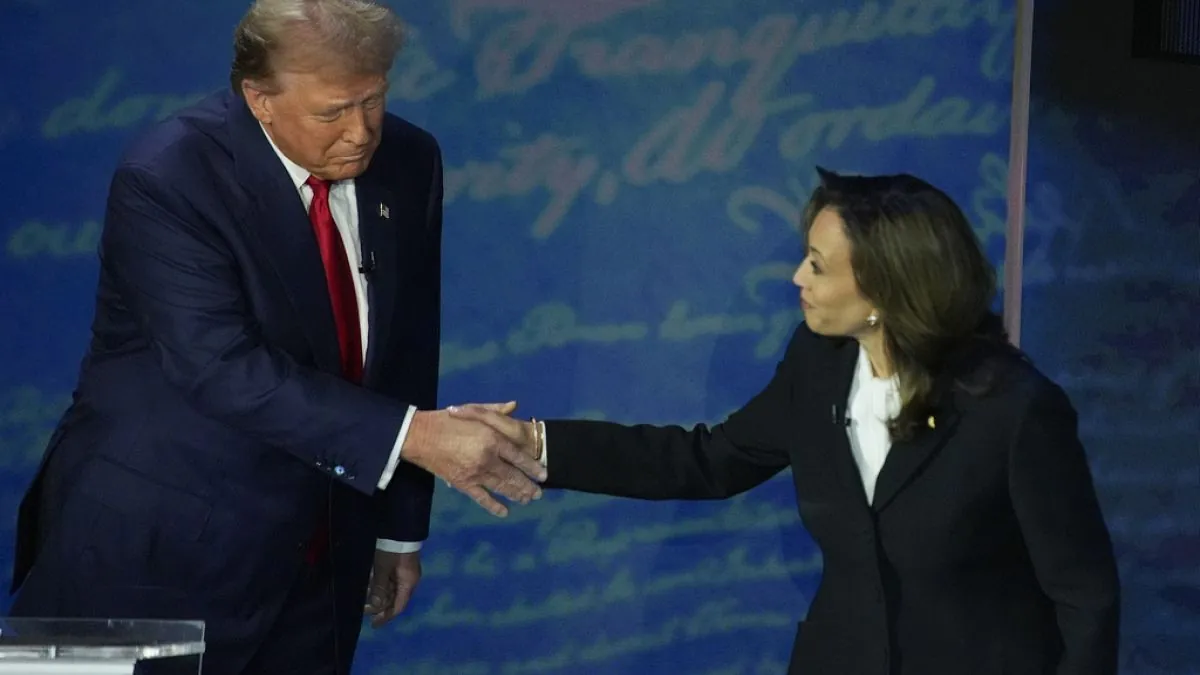In a recent debate with Vice President Kamala Harris, former President Donald Trump once again demonstrated his admiration for Viktor Orbán, the Prime Minister of Hungary. This incident, occurring just two days ago on September 10, 2024, has reignited discussions about Trump's understanding of international politics and his apparent affinity for leaders often described as autocrats.
Trump's response to Harris's criticism included a familiar refrain: praise for Orbán as "one of the most respected men" and a "strongman." However, this characterization reveals a fundamental misunderstanding of the term "strongman" in political contexts.
"Viktor Orbán, one of the most respected men — they call him a 'strongman.' He's a tough person. Smart. Prime Minister of Hungary."
The term "strongman" in politics typically refers to authoritarian leaders who rule through force and populist appeal, rather than democratic processes. Orbán, who has been Hungary's Prime Minister since 2010, has faced significant criticism for undermining democratic institutions in his country. In fact, Hungary was classified as a "hybrid regime" by Freedom House in 2020, reflecting concerns about its democratic backsliding.
Trump's interpretation of "strongman" as simply a "strong man" is evident in his repeated use of the term as a compliment. This misunderstanding extends beyond Orbán to other leaders Trump has praised in the past, including John McCain in 2008 and Arnold Schwarzenegger in 2003, both of whom he described as "strong" men.
Under Orbán's leadership, Hungary has seen significant changes that have alarmed democratic observers. The European Parliament invoked Article 7 against Hungary in 2018 due to rule of law concerns, and in 2022, it determined that Hungary no longer met the standard to be considered a full democracy, instead labeling it an "electoral autocracy."
Orbán's government has implemented policies that have been criticized as anti-immigration and anti-LGBTQ+. The Hungarian media landscape has become less diverse, with the country now having one of the lowest press freedom rankings in the EU according to Reporters Without Borders.
Trump's apparent approval of Orbán's leadership style raises questions about his own views on democratic governance. By consistently praising leaders who are often described as autocrats or strongmen, Trump seems to be endorsing a form of leadership that prioritizes personal power over democratic institutions.
This pattern of admiration for autocratic tendencies is not limited to Orbán. Trump has also referred to Chinese President Xi Jinping as a "strong guy," despite China's well-documented human rights issues and authoritarian governance.
As the 2024 presidential campaign continues, Trump's comments about international leaders and his understanding of global politics will likely remain under scrutiny. His misinterpretation of the term "strongman" and his consistent praise for leaders with autocratic tendencies may continue to be a point of concern for those who value democratic norms and institutions.
